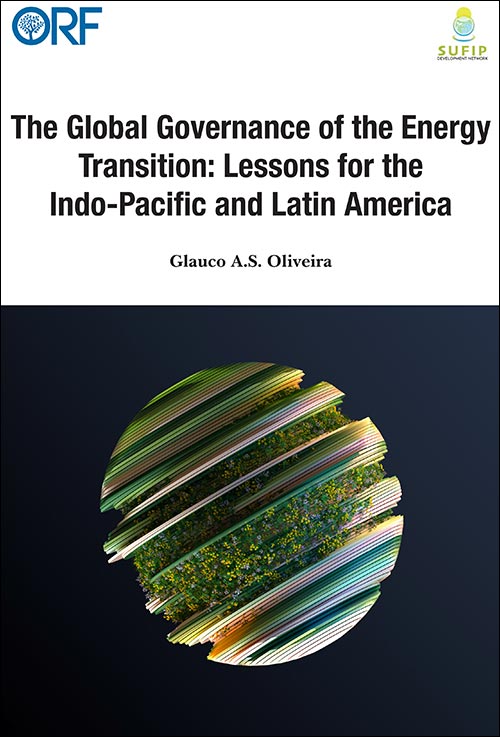
The true benefit of the digital space lies in the fact that it enables billions of creators. It awards individuals agency, along with the opportunity and the space to express themselves with more freedom than ever before. It enables them to find work and to learn through the free flow of information and societal interactions global scale, without prescriptive local restrictions. However, such freedoms have also brought forward multiple challenges for individual rights.
The trends defining the state of the individual and her rights over the past few years are as follows:
First, and most importantly, we’ve lost control over our data.
Individuals have effectively lost control over their own data, and how they consume content and services. Data is being collected en masse, and used by marketers to profile users, which is used to drive engagement, clicks and time-spent on applications. Individuals have little knowledge or understanding of how they’re being profiled and targeted, and have few options to prevent or restrict this targeting, since this data is being collected from multiple sources, across applications and services. Consent frameworks have largely failed to restrict data collection and profiling, owing to verbose agreements and consent fatigue. Application stores with broad permissions tend to act more as enablers of data collection, rather than provide users agency. Apps and advertising networks have malware which compromise user privacy.
Individuals have little knowledge or understanding of how they’re being profiled and targeted, and have few options to prevent or restrict this targeting, since this data is being collected from multiple sources, across applications and services.
Secondly, the centralization of the Internet into significantly large businesses with over a billion users each has led to a reduction in the individual’s reduced to negotiate its terms of engagement.
Platforms are in the business of increasing fragmentation and monetizing aggregation. The Internet allows for aggregation of factors of production on a global scale, thus providing a global customer/user base with a never-before diversity of content and services. For creators and service providers, there is the opportunity to be an entrepreneur, and/or get disproportionately high revenue, or build a loyal fan/customer base. Some platforms - taxi aggregators, for example - end up providing debt and high revenue to incentivize participation on the platform, while also
increasing their dependence on the platform itself. However, as more and more participants are added to platforms, the exertion of control by the platform, over discovery through personalization, reduces the negotiating ability of each individual producer. Tweaks to algorithms or revenue shares can destroy all that they have built.
Unionization and cartelization among individual producers are possible responses to this outcome. For example, this could involve key content creators going off YouTube, or drivers protesting or boycotting Uber. However, while the Internet offers creators with alternatives, the winner-takes-all nature of competition in the platform business, the utility of the network effects, the dependence of users on discovery, and the financial heft of platforms means that signing out is often not an option for individual creators/service providers. While entrepreneurship and agency for individuals was once enabled by platforms, now they’re often stuck without a choice.
Thirdly, free speech is highly dependent on a few platforms, and is being restricted by hecklers getting the veto.
The centralization of Internet usage around a few platforms has made them critical as carriers of free speech. For users, these large platforms – with their network of friends, family and colleagues — are primary avenues for expression: the dependence on such platforms to maintain and allow their speech is high. However, restrictions to speech are now being attempted via these platforms. Governments do this, for example, through amendments to safe harbor protections; in India, in the name of automating censorship, pro-active monitoring and automated takedowns of content is being considered. Secondly, the same platforms are being used by organized trolls, who are often paid to overwhelm users and platforms with hateful content – this has a chilling effect on speech. While organic critiques and pushback against comments made on the Internet have been around for decades, these organized pushbacks have now become the norm.
Fourth, data is being viewed as a factor of production and a national asset, as opposed to an individual right. Governments are profiling citizens.
‘Data is the new oil’, is a popular catchphrase in business and government circles. Both individual and analysed data are being viewed as critical to the development of a region/nation. The claim is that data belonging to a community of individuals belongs to the nation state, or needs to be controlled by the state directly, or via national corporations. Digital National IDs are in vogue, and in India, silos between various datasets are being made obsolete, as they are now connected by a single unique identifier, which is being used to profile citizens. Currently, large government datasets are being created: for example, a public credit registry will hold transaction and credit information for individual citizens. Pitted against statutory power, individual citizens have little choice but to part with their data. Consent frameworks enable the sharing of this data with private enterprises, and are faced with a potential denial of service sans the data-sharing; it is clear that individuals have little choice. Data collection is being positioned as critical for growth of an artificial intelligence ecosystem, without critical analysis of whether collecting more data actually helps the system. In all of this, the individual is particularly helpless and often without choice.
Fifth, usage of biometrics and facial recognition systems for authentication is becoming shockingly popular.
Biometric systems are being seen as a solution to fraud. Cameras and data storage have become cheaper, and biometric authentication software — especially on mobile devices — have become common. In addition, facial recognition in public places, such as in airports, on the streets, and via CCTV cameras, is becoming more pervasive. These developments pose new risks for individuals: firstly, biometrics are permanent and seen as irrefutable, despite the fact that they can be cloned and misused. The usage of polymer resin to clone fingerprints is possible, as is cloning via high resolution photographs. Secondly, biometrics are often seen as a single factor of authentication, and a corresponding second factor is often missing. Thus, given the inaccuracy of authentication, especially when it is a one-to-many comparison with a database, the chances of false positives and false negatives is high. When facial recognition systems meet citizen profiling and social credit systems, individual liberty is at particular risk.
Sixth, individuals are being attacked and weaponized.
Our behavior is constantly being gamified: marketers and product developers are using the dopamine effect to drive addiction to applications, services and purchases using targeted communication and pattern recognition on a planetary scale. And, that’s not where it ends: content is being created to instill and entrench bias; this is amplified using algorithmic filter bubbles and granular personalization. With behavioral targeting of individuals, and an instillation of deep bias, indviduals are being manipulated and weaponized to target communities, democratic processes and countries. We have already seen how messages on social media have been used to manipulate elections, and create misinformation; online videos have driven mobs to kill people.
Our behavior is constantly being gamified: marketers and product developers are using the dopamine effect to drive addiction to applications, services and purchases using targeted communication and pattern recognition on a planetary scale.
Seven, speech is being restricted via internet shutdowns, content regulation and online mobs.
With the pervasiveness of misinformation, and its impact on inciting mob violence, governments are choosing to shut down all access to the Internet: this is a disproportionate act of censorship, which punishes everyone for the actions of a few. In India, court cases have been filed for regulating content on the Internet, especially on video streaming platforms, on grounds of obscenity, being hurtful towards religious sentiments, violence etc. On social media, the Indian government is seeking proactive monitoring and the takedown of content. Several Indian ISPs already block porn sites. In addition, co-ordinated mobs attack particular accounts for their comments, especially on Twitter and Facebook, with doxxing, and death and rape threats being par for the course.
Eight, surveillance is the new normal.
The demand for government monitoring of all communications is high, and there’s a significant threat to end-to-end encryption. The privatization of surveillance manifests in two major ways: firstly, with private companies providing technological support to governments for enabling their surveillance systems. Second, it manifests with private companies collecting data on users, which in turn may be accessed by governments. The profiling of citizens, and the breaking down of silos between disparate databases, using unique identifiers like mobile numbers and national IDs is becoming normalized.
While threats to individual rights continue to grow with rapid digitization and centralization, these issues are compounded by a lack of user awareness, the understanding of the implications of certain practices, and in some instances, the lack of user agency. Work needs to be done to create structures to reduce the usage of digital technologies to harm individual rights.
This essay originally appeared in Digital Debates — CyFy Journal 2019
The views expressed above belong to the author(s). ORF research and analyses now available on Telegram! Click here to access our curated content — blogs, longforms and interviews.




 PREV
PREV


